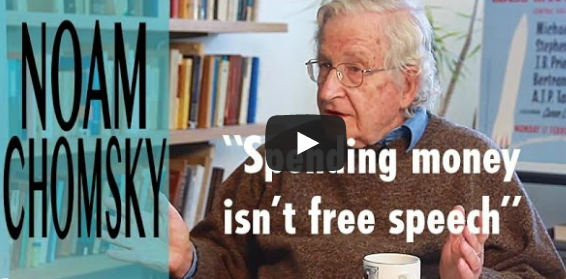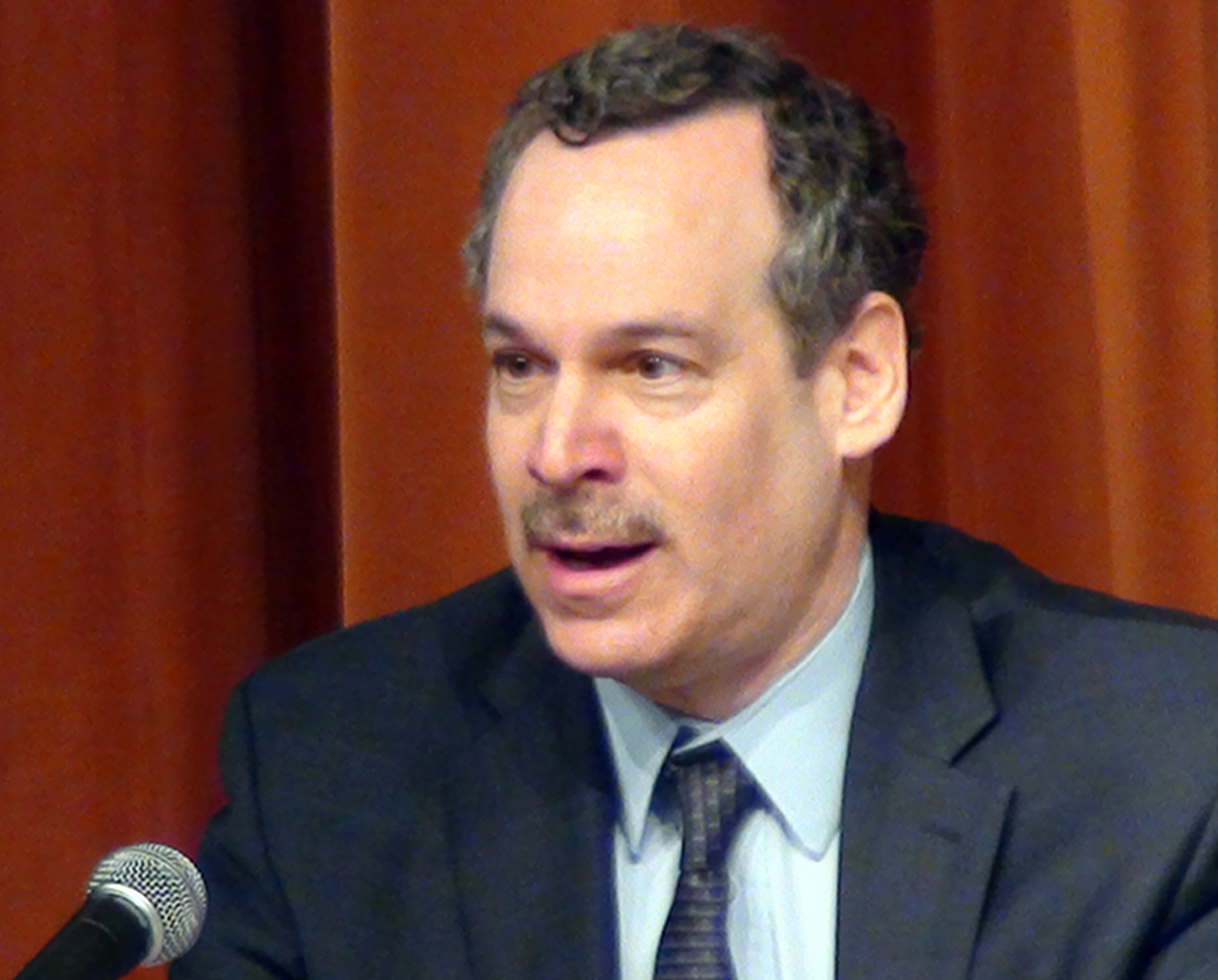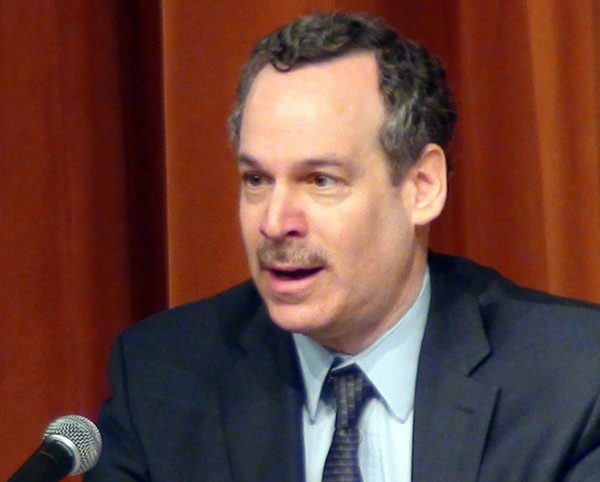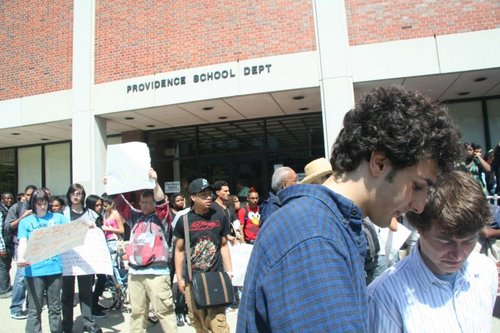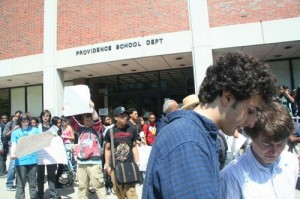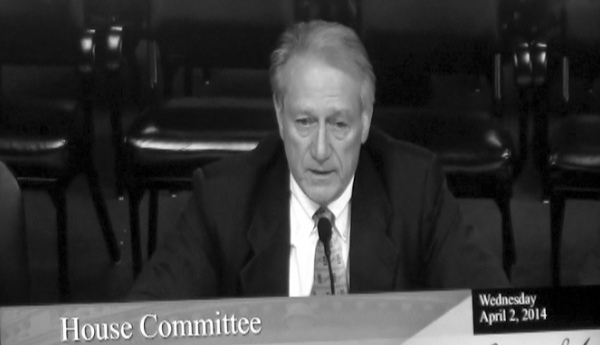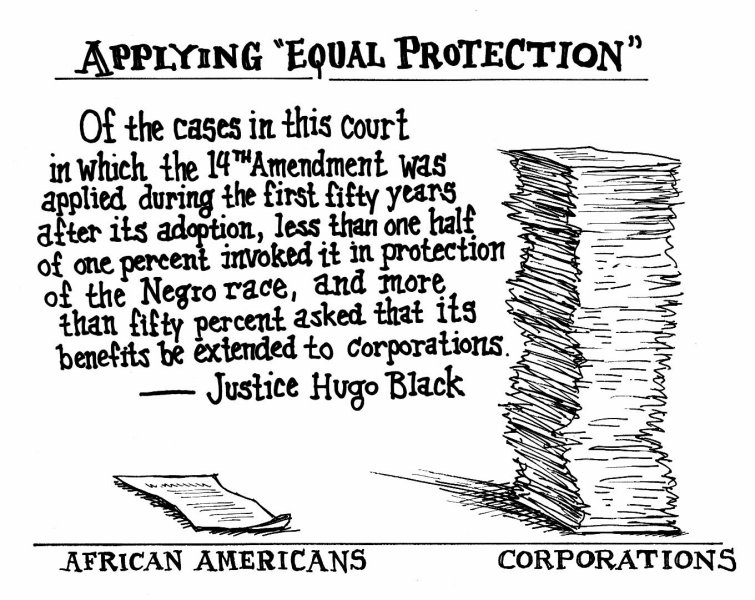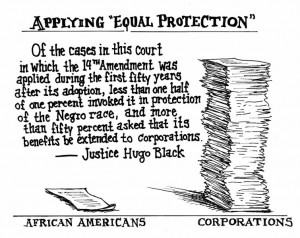In the recent Supreme Court decision McCutcheon v. FEC, the right wing Bush appointed Supreme Court Justices tipped the scales and ruled essentially that spending money is free speech. When Abel Collins interviewed famed linguist and philosopher Noam Chomsky, Noam asked rhetorically asked why not just admit that we have given up on democracy and admit that we are a plutocracy- accepting rule by the wealthy class, the 1%.
Supreme Court Justice Clarence Thomas- who may go down as the worst justice in the history, went further writing that “all limits on campaigns contributions are unconstitutional.”
This makes the Nobel-Prize winning economist Joseph Stiglitz article the 2011 Vanity Fair magazine article entitled “Of the 1%, by the 1%, for the 1%“, quite prescient:
“Of all the costs imposed on our society by the top 1 percent, perhaps the greatest is this: the erosion of our sense of identity, in which fair play, equality of opportunity, and a sense of community are so important. America has long prided itself on being a fair society, where everyone has an equal chance of getting ahead, but the statistics suggest otherwise: the chances of a poor citizen, or even a middle-class citizen, making it to the top in America are smaller than in many countries of Europe. The cards are stacked against them. It is this sense of an unjust system without opportunity that has given rise to the conflagrations in the Middle East: rising food prices and growing and persistent youth unemployment simply served as kindling. With youth unemployment in America at around 20 percent (and in some locations, and among some socio-demographic groups, at twice that); with one out of six Americans desiring a full-time job not able to get one; with one out of seven Americans on food stamps (and about the same number suffering from “food insecurity”)—given all this, there is ample evidence that something has blocked the vaunted “trickling down” from the top 1 percent to everyone else. All of this is having the predictable effect of creating alienation—voter turnout among those in their 20s in the last election stood at 21 percent, comparable to the unemployment rate.”
So what’s the solution? Abel Collins offers this:
“We have the numbers. Let us freely assemble, muster our forces, and occupy politics from the bottom up. Put your name in the hat for city or town council. Start a blog, plan street theater, get arrested and be heard. By all means, we should start by reversing the effects of Citizens United. Municipal and statewide resolutions calling on Congress to amend the U.S. Constitution to say that corporations aren’t people and political campaign spending isn’t protected speech can get the ball rolling. Amending State Constitutions via voter initiative or legislative referendum to this same effect as I have proposed in Rhode Island is another step. Whatever else, let us not cede the political sphere to the corporations, whether they are people in the eyes of the Supreme Court or not.”
At least it is one strategy, but considering the ethics of our state legislature it seems rather unlikely. Getting mass numbers assembled and engaged seems a more likely strategy to succeed. But can we do it? That is up to you.
(This video is from 10-8-13 #2 Abel & Noam Interview Part 2 Money as Free Speech Produced by Robert Malin c.2014)

